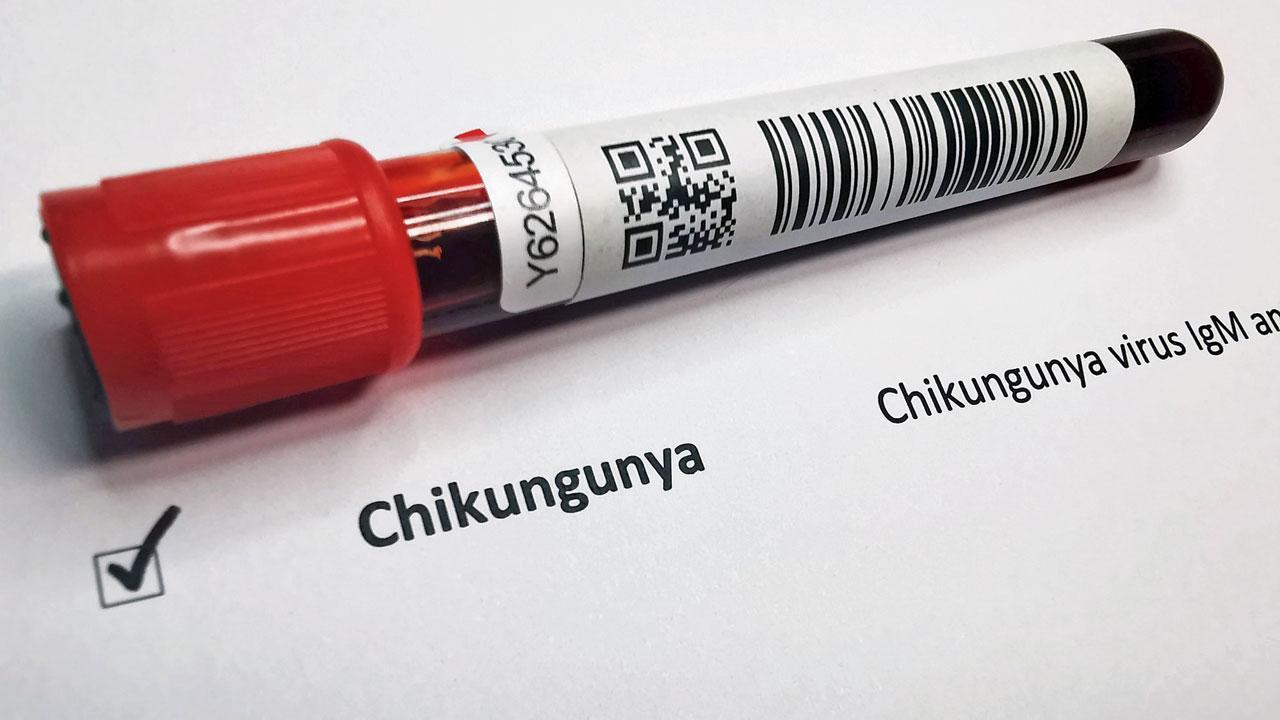High-rise residents, those with comorbidities particularly at risk; civic body’s data may not reflect full extent of problem

In light of increasing cases of monsoon-related illnesses, doctors have advised Mumbaikars to take precautions. Representation pic
A rise in chikungunya cases has been noted in and around Juhu by both public and private doctors, though many cases may not be reflected in civic data. According to BMC's data for July, there were only 25 reported cases of chikungunya. In light of increasing monsoon-related illnesses, doctors have also advised precautions for those with comorbidities.
ADVERTISEMENT
“We have seen more and more families coming in with chikungunya in the past two weeks. It is the most common illness after dengue, typhoid and flu,” said Dr Hemalata Arora, an infectious disease expert from Nanavati Hospital. There have been at least 25 cases of chikungunya in just two weeks at her hospital.
An interesting trend was noted by a doctor from the civic-run Cooper Hospital. “Chikungunya appears to be more common among residents of high-rise buildings,” said the doctor. He added, "We only perform an IgM test if the cases are severe, as civic hospitals do not perform PCR tests.”
Dr Arora explained that PCR tests for chikungunya can cost up to Rs 3,000, and most tests are conducted at private facilities. “IgM only becomes positive after four to five days of fever, so doctors often test for other potentially fatal ailments to ensure a person is not at risk,” Dr Arora noted.
Dr Neeraj Tulara, another infectious disease expert at Dr L H Hiranandani Hospital in Powai, said the hospital has been witnessing large numbers of dengue cases. “The same mosquito that spreads dengue also spreads chikungunya. In and around Powai, there are more cases of dengue. The spread of disease is localised, so some areas may show higher numbers of certain diseases.”
There was also one death reported at Bandra’s Holy Family Hospital: a 65-year-old H1N1 patient with a history of chemotherapy. “Those with comorbidities need to be careful. Immunosuppression increases the risk of infections and mortality. This is also true for people with diabetes, who may experience severe symptoms,” said Dr Lipika Parulekar, an infectious disease expert at Holy Family Hospital.
She noted that there are at least 30 patients a day at the OPD for monsoon-related illnesses. “We have also observed cases of falciparum and vivax malaria and dengue. One patient had dengue along with pneumonia. Some patients required hospitalisation, and a few needed ventilators,” Dr Parulekar said.
IgM, PCR tests
The Immunoglobulin M (IgM) test measures the presence of antibodies in the blood to diagnose recent infections. A PCR test is more accurate and detects the virus’ genetic material in the blood.
 Subscribe today by clicking the link and stay updated with the latest news!" Click here!
Subscribe today by clicking the link and stay updated with the latest news!" Click here!










